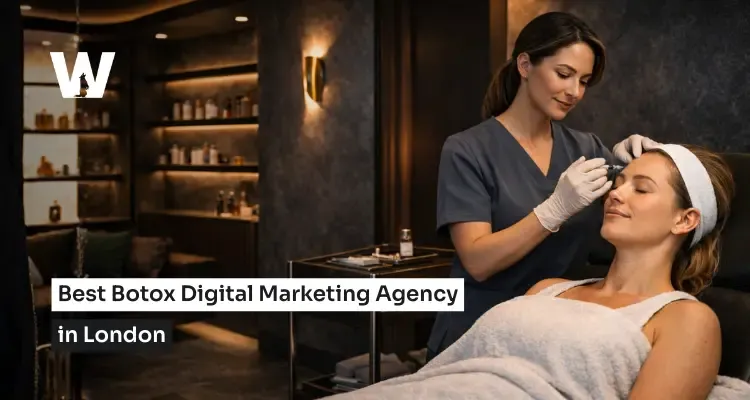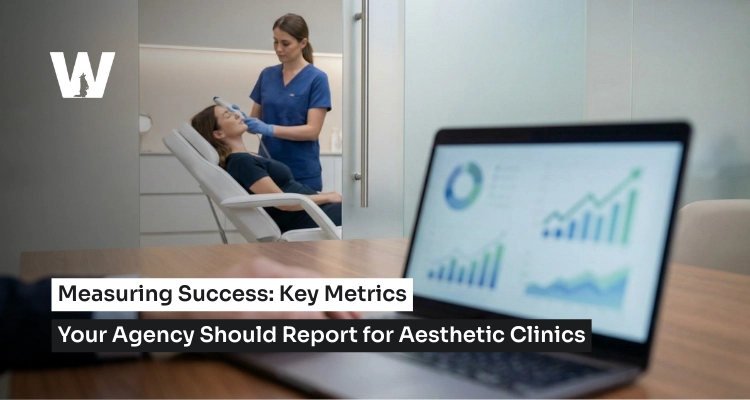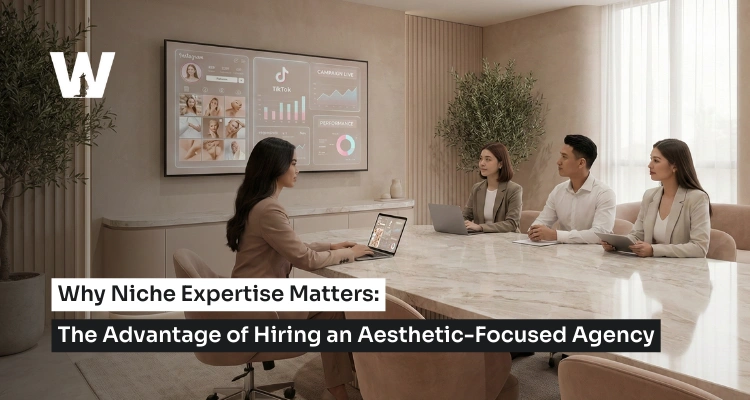Wraps up in 7 Minutes
If you're a restaurant owner in the UK, you're operating in one of the world's most competitive hospitality markets. Worth £71.3 billion annually, the UK restaurant industry demands smart marketing strategies to stand out from the crowd.
The good news? You don't need a massive budget or complex campaigns to succeed. What you need is a clear understanding of your market and the right digital marketing approach.
At Wolfable, we've helped hundreds of UK restaurants transform their marketing efforts and achieve sustainable growth. Whether you're running a cosy village pub or a trendy city bistro, this guide will show you exactly how to attract more customers and keep them coming back.
Why Do Most UK Restaurant Marketing Strategies Fail?
Before diving into what works, let's address why 60% of restaurant marketing efforts fail to deliver meaningful results.
The biggest mistake? Trying to be everywhere at once instead of mastering the basics.
Most restaurant owners make these critical errors:
- Neglecting their Google Business Profile (your most important free marketing tool)
- Posting inconsistent content on social media
- Ignoring mobile optimisation when 78% of searches happen on phones
- Focussing on attracting new customers whilst losing existing ones
The solution is simpler than you think: Master the fundamentals first, then expand strategically.
What Do UK Diners Really Want in 2025?
Understanding your customers is the foundation of effective restaurant marketing UK strategies. Here's what recent research reveals about British dining preferences:
Digital-First Expectations
- 54% won't book without online options
- 86% check menus online before visiting
- 62% join loyalty programmes for meaningful rewards
- 53% discover restaurants through TikTok and Instagram
Value and Experience Priorities
- Local and sustainable sourcing (increasingly important to 67% of diners)
- Instagram-worthy presentation (especially amongst 25-40 age group)
- Seamless booking experience (friction kills conversions)
- Genuine value for money (not just cheap prices)
Pro Tip: British consumers are willing to pay premium prices for exceptional experiences and ethical practices. Position your restaurant accordingly.
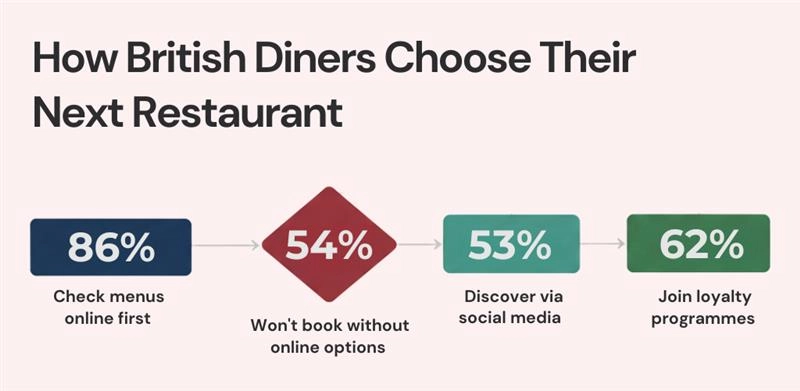
How Much Should You Spend on Restaurant Marketing?
This is one of the most common questions we hear at Wolfable, and the answer depends on your restaurant's stage and goals.
Industry Standard Guidelines:
- Established restaurants: 3-5% of total revenue
- New restaurants: 6-10% of revenue in the first year
- Struggling restaurants: Up to 8% until you achieve stable growth
Budget Allocation Framework
| Marketing Channel | New Restaurant (%) | Established Restaurant (%) |
|---|---|---|
| Digital Marketing (SEO, Social Media) | 40% | 50% |
| Paid Advertising | 30% | 25% |
| Local Community Marketing | 20% | 15% |
| Email Marketing & Retention | 10% | 10% |
Remember: If budget is tight, focus on free methods first. Many successful restaurant marketing campaigns start with £0 investment.
What Are the Essential Digital Marketing Basics for UK Restaurants?
Digital marketing forms the backbone of modern restaurant marketing UK strategies. Here's how to get the fundamentals right:
How to Create a Restaurant Website That Actually Converts
Your website is often the first impression potential customers have of your restaurant. Here's what you absolutely must include:
Non-Negotiable Elements:
- Mobile-responsive design (crucial since 78% of restaurant searches happen on mobile)
- Clear menu with current prices (PDF menus kill conversions)
- One-click booking system (reduce friction wherever possible)
- High-quality food photography (invest in professional photos or learn basic food photography)
- Accurate opening hours and location (update during holidays and special events)
Common Mistakes to Avoid:
- Slow loading times (anything over 3 seconds loses 40% of visitors)
- Outdated information (especially prices and seasonal menus)
- Missing contact information (include phone, email, and physical address)
- Auto-playing music or videos (annoying for mobile users)
At Wolfable, our WordPress development team specialises in creating fast-loading, conversion-optimised restaurant websites that turn visitors into customers.
Ready for a High-Converting Restaurant Website? → Get Your Website Audit
Why Google My Business is Your Most Important Marketing Tool
Google My Business (now Google Business Profile) is absolutely critical for local marketing for restaurants. It's free, highly effective, and often the first thing potential customers see.
Setup Essentials:
- Claim and verify your listing (if you haven't already)
- Complete every section (incomplete profiles rank lower)
- Upload high-quality photos (restaurants with photos get 42% more direction requests)
- Connect your booking system (enable direct reservations through Google)
- Respond to every review (shows you care about customer feedback)
Pro Strategies:
- Post weekly updates about specials, events, or behind-the-scenes content
- Use local keywords in your description ("best Sunday roast in Camden")
- Add seasonal hours for holidays and special events
- Encourage reviews from happy customers (but never buy fake reviews)
Local SEO Boost: Include location-specific keywords naturally throughout your Google Business Profile and website content.
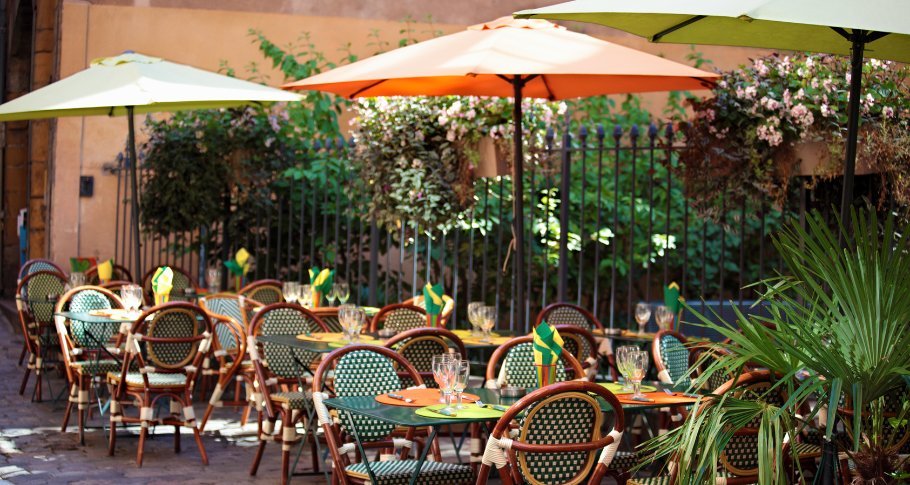
Which Social Media Platforms Work Best for UK Restaurant Marketing?
Social media strategy varies significantly based on your target audience and restaurant type. Here's how to approach each major platform:
Instagram: The Visual Storytelling Powerhouse
Instagram is perfect for showcasing your food and creating desire. It's particularly effective for restaurants targeting millennials and Gen Z customers.
Content Strategy That Works:
- Food photography with bright, natural lighting
- Behind-the-scenes videos of food preparation
- Staff personalities and customer interactions
- Local hashtags (#LondonEats #ManchesterFood #BirminghamBites)
Instagram-Worthy Food Presentation Tips:
- Use contrasting colours (think golden fish and chips against dark plates)
- Add unique garnishes that reflect your brand
- Natural lighting beats artificial every time
- Clean, attractive plating is non-negotiable
Facebook: Community Building and Local Engagement
Facebook excels at building local community connections and driving event attendance.
Effective Facebook Strategies:
- Create events for special nights, live music, or seasonal celebrations
- Share local news and partnerships (builds community connection)
- Respond quickly to messages and comments
- Post opening hours and holiday updates prominently
TikTok: Reaching Younger Audiences with Fun Content
TikTok is crucial for restaurants targeting under-35 demographics. The platform rewards creativity and authenticity over production value.
TikTok Content Ideas:
- Quick cooking process videos (satisfying to watch)
- Staff personality content (day-in-the-life videos perform well)
- Food challenges and trending audio
- Restaurant tours highlighting unique features
Content Calendar for Maximum Impact:
- Monday: Weekend highlights and customer features
- Tuesday: Special offers and promotions
- Wednesday: Behind-the-scenes content
- Thursday: Staff spotlights and team culture
- Friday: Weekend preparation and anticipation
- Weekend: Live updates and real-time content
How to Attract New Customers Through Local Marketing
Local marketing remains one of the most effective ways to build a sustainable customer base for UK restaurants.
Leveraging British Heritage in Your Marketing
British consumers have strong emotional connections to local identity and heritage. Here's how to tap into this:
Heritage Marketing Strategies:
- Source locally and tell those stories (Scottish beef, Cornish seafood, Yorkshire puddings)
- Celebrate British traditions (proper afternoon tea, Sunday roasts, seasonal celebrations)
- Partner with local suppliers and share their stories
- Support local events and charities (builds community goodwill)
How to Use Paid Advertising Effectively for Restaurants
Paid advertising can accelerate growth when done correctly. Here's how to maximise your ROI:
Google Ads for Restaurants:
- Target "restaurant near me" searches (high-intent keywords)
- Set precise location targeting (5-10 mile radius typically works best)
- Use appetising food photos in ad extensions
- Start with small budgets (£200-500/month for testing)
Facebook and Instagram Ads:
- Target local food enthusiasts based on interests and behaviour
- Promote special events and seasonal offerings
- Retarget website visitors who didn't complete bookings
- Use video content (gets 3x more engagement than static images)
Ad Copy That Converts:
- Clear call-to-action ("Book Your Table Now")
- Include specific offers and prices
- Use urgency when appropriate ("Limited Weekend Availability")
- Highlight unique selling points
Community Engagement Strategies That Work
Building genuine community connections creates customers for life.
Local Partnership Ideas:
- Sponsor local sports teams (your logo on jerseys builds brand awareness)
- Host charity fundraisers (builds goodwill and attracts supporters)
- Partner with nearby businesses (cross-promotion opportunities)
- Offer student discounts near universities (builds young customer base)
Event Marketing:
- Quiz nights (builds regular customer base)
- Live music evenings (attracts music lovers)
- Wine tasting events (higher profit margins)
- Cooking classes (positions you as culinary authority)
How to Keep Customers Coming Back: Retention Strategies That Work
Acquiring new customers costs 5x more than retaining existing ones. Here's how to build loyalty:
Email Marketing for Restaurants: Simple but Powerful
Email marketing delivers an average ROI of £35 for every £1 spent. Here's how to do it right:
Building Your Email List:
- Ask for emails during booking (capture at the point of excitement)
- Offer welcome discounts for newsletter sign-ups
- Use simple signup forms at your restaurant
- Provide value immediately (don't just collect emails without giving something back)
Email Types That Generate Revenue:
- Birthday offers (free dessert or percentage discount)
- Weekly specials announcements
- Event invitations (VIP early access builds exclusivity)
- Seasonal menu updates with mouth-watering photos
- Thank you messages after dining (builds emotional connection)
Email Best Practices:
- Keep subject lines under 50 characters
- Mobile-optimise everything (60% of emails are opened on mobile)
- Send 1-2 emails per week maximum (avoid overwhelming subscribers)
- Personalise content based on customer preferences
How to Create a Simple but Effective Loyalty Programme
Loyalty programmes increase customer lifetime value by up to 30%. Keep yours simple:
Simple Programme Ideas:
- Punch card system: Buy 9 meals, get the 10th free
- Points-based: Earn 1 point per £1 spent, redeem at milestones
- Birthday month perks: Special discounts during customers' birthday month
- VIP access: Early booking for special events
- Referral rewards: Discounts for bringing new customers
Digital vs. Physical Programmes:
- Phone number lookup (simple for staff and customers)
- App-based programmes (if you have tech-savvy customers)
- Email tracking (easiest to implement)
- Social media check-ins (builds online presence)
Make It Easy:
- No complicated rules or fine print
- Instant gratification where possible
- Train all staff to explain the programme
- Regular communication about progress
Wolfable can help you implement automated email marketing campaigns and digital loyalty programmes that increase customer retention.
Want More Repeat Customers? Start Email Marketing with Wolfable
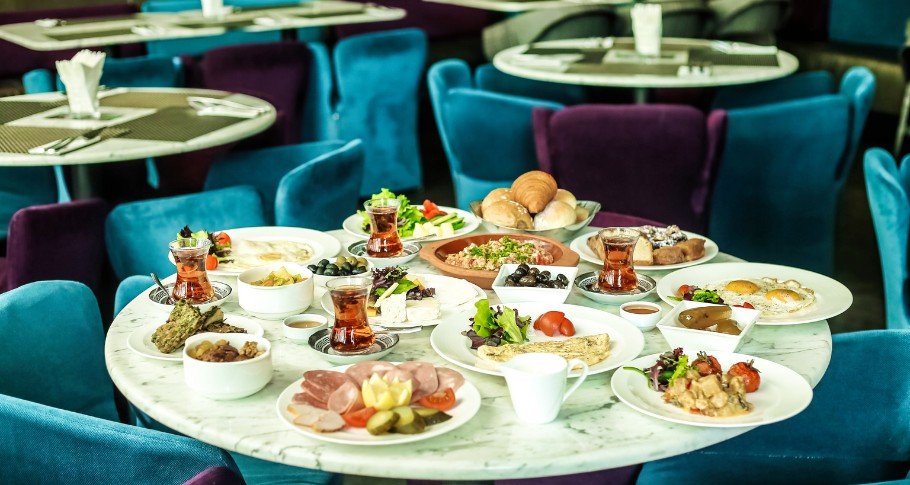
What Are the Best Marketing Tools for UK Restaurants?
The right tools can streamline your marketing efforts and improve results. Here are our top recommendations:
Essential Marketing Technology Stack
Must-Have Tools:
- Booking system: OpenTable, Resy, or integrated website booking
- Review management: Google My Business app + review monitoring tools
- Social media scheduling: Later, Hootsuite, or Buffer
- Email marketing: Mailchimp, Constant Contact, or ConvertKit
- Analytics: Google Analytics + Google My Business insights
Advanced Tools for Growth:
- Customer relationship management (CRM): Track customer preferences and visit history
- Inventory management integration: Connect marketing with menu planning
- Staff scheduling tools: Ensure adequate coverage for promoted events
- Point-of-sale (POS) integration: Track which marketing efforts drive actual sales
How to Measure Restaurant Marketing Success
Track these key metrics to ensure your marketing investments are paying off:
Primary KPIs:
- Customer acquisition cost (how much you spend to get each new customer)
- Customer lifetime value (total revenue from each customer over time)
- Return on advertising spend (ROAS): Aim for at least 3:1 ratio
- Email open rates: Industry average is 25-30%
- Social media engagement rate: Aim for 3-5% engagement
Secondary Metrics:
- Website traffic and conversion rates
- Online review ratings and quantity
- Social media follower growth
- Email list growth rate
- Repeat customer percentage
How to Handle Seasonal Marketing for UK Restaurants
British dining habits change dramatically with the seasons. Here's how to adapt:
Spring and Summer Marketing Strategies
Focus Areas:
- Outdoor seating promotions (crucial for British summers)
- Fresh, light menu items (salads, grilled fish, seasonal vegetables)
- Garden party events (private dining opportunities)
- Extended opening hours messaging
Content Ideas:
- Behind-the-scenes garden preparation
- Fresh ingredient sourcing stories
- Patio dining atmosphere videos
- Summer cocktail features
Autumn and Winter Approaches
Emphasis:
- Comfort food marketing (hearty stews, roasts, warming desserts)
- Cosy atmosphere highlighting (fireplaces, warm lighting)
- Holiday booking campaigns (Christmas, New Year's, Valentine's Day)
- Indoor event promotion (perfect weather for intimate gatherings)
Seasonal Content:
- Warmth and comfort messaging
- Holiday tradition connections
- Seasonal ingredient spotlights
- Indoor ambiance showcases
Should You Work with Food Influencers and Bloggers?
Influencer marketing can be highly effective for restaurants when done authentically.
Finding the Right Local Influencers
Target Categories:
- Local food bloggers (often have highly engaged local audiences)
- Lifestyle accounts in your area (broader reach but relevant)
- University students (if targeting younger demographics)
- Community leaders (councillors, local business owners)
Collaboration Ideas:
- Honest review meals (free meal in exchange for authentic review)
- Event invitations (new menu launches, special occasions)
- Behind-the-scenes access (kitchen tours, chef interactions)
- Photo opportunities (Instagram-worthy dishes and atmosphere)
Evaluation Criteria:
- Local audience (at least 60% followers in your area)
- Engagement rate over follower count
- Content quality and brand alignment
- Previous restaurant collaborations (check authenticity)
Common Restaurant Marketing Mistakes to Avoid
Learning from others' mistakes can save you time and money:
Digital Marketing Pitfalls
Website Mistakes:
- PDF menus (impossible to read on mobile)
- Missing or incorrect contact information
- Slow loading times (kills conversions)
- No online booking option
Social Media Errors:
- Inconsistent posting schedules /li>
- Over-promotional content (80/20 rule: 80% value, 20% promotion) /li>
- Ignoring comments and messages /li>
- Poor quality photos
Customer Service Missteps
Review Management Failures:
- Not responding to negative reviews
- Defensive responses to criticism
- Ignoring positive reviews
- Taking too long to address issues
In-Restaurant Issues:
- Untrained staff regarding promotions
- Inconsistent service quality
- Not asking for feedback
- Failing to follow up on complaints
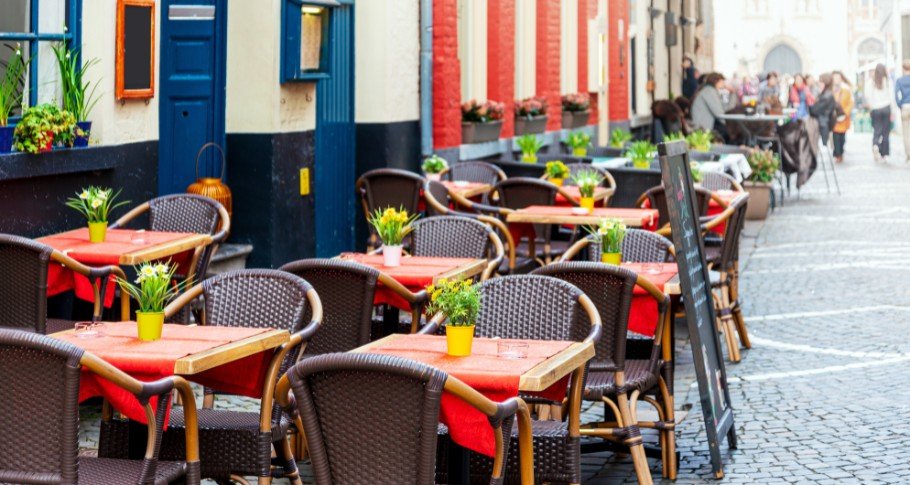
How Wolfable Can Transform Your Restaurant Marketing
At Wolfable, we understand the unique challenges facing UK restaurant owners. Our comprehensive digital marketing services are specifically designed to help hospitality businesses thrive:
Our Restaurant Marketing Services
- SEO Services: We optimise your website and Google Business Profile to dominate local search results for terms like "best restaurant in [your area]."
- Social Media Marketing: Our creative team produces engaging content that showcases your food and builds a loyal community around your brand.
- Graphic Design & Video Development: Professional food photography, menu design, and promotional videos that make your restaurant irresistible.
- WordPress Development: Fast-loading, mobile-optimised websites with integrated booking systems and menu management.
- Performance Marketing: For restaurants aiming for measurable growth, we run data-driven campaigns focused on ROI—every click, lead, and conversion is tracked and optimized.
Ready to Transform Your Restaurant's Marketing Success?
The UK restaurant market is competitive, but with the right marketing strategies, your restaurant can thrive. Success comes from mastering the basics—optimising your online presence, engaging with your local community, and providing exceptional customer experiences.
Don't navigate restaurant marketing alone. Wolfable specialises in helping UK restaurants build sustainable marketing systems that drive consistent growth.
Get Your Free Restaurant Marketing Audit
Ready to discover what's holding your restaurant back from reaching its full potential? Our comprehensive marketing audit includes:
- Current strategy evaluation (website, social media, local SEO)
- Custom action plan with priority recommendations
- Local competitor analysis to identify opportunities
- ROI-focussed recommendations that fit your budget
Whether you're running a cosy village pub, trendy city bistro, or growing restaurant chain, we understand what works in the UK market.
Contact Wolfable today and let's fill your tables with happy customers whilst growing your business the smart way!
Transform your restaurant marketing from guesswork to growth. Your success story starts with a single conversation.



